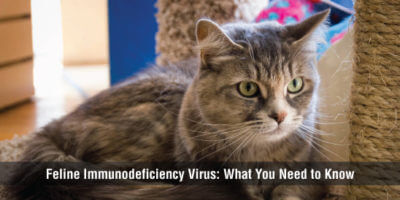
FIV is a feline-only virus that cannot be transmitted to humans. It is sometimes suggested that the virus can be transmitted via sharing food bowls and litter trays or mutual grooming.

FIV- and FeLV-Positive Cats Can Live Healthy Lives Outdoors March 5 2019 Alley Cat Allies staff rescued her from the median of a busy highway in January 2018 FeLV or Feline Leukemia Virus.
How long do fiv positive cats live. However some other FIV-positive cats can live a healthy life for up to ten years. FIV attacks the immune system of the infected cat and lowers its defense system. It is a slow-acting virus that enables the felines to live a long healthy life with little signs of illness.
How long does a cat with FIV live. There is no one life expectancy for a cat with feline immunodeficiency virus. It will wholly depend on the individual.
However as there is no cure for FIV it will be important to manage the cats symptoms if you want to extend their life as long as possible. To clarify their infection status kittens younger than six months of age that test positive for FIV should be retested at 60-day intervals until they are at least six months old. If their antibody test remains positive after six months old they almost certainly have a true infection.
Approximately 18 die within 5 years. One study found that FIV-positive cats live for an average of 5 years after their diagnosis but their prognosis can vary greatly. If FIV symptoms start to show up they treat any secondary.
Normal Life Possible Dr. Reinhart emphasizes that a positive diagnosis for FeLV andor FIV is not an automatic death sentence for cats. Although cats can die from these diseases many live several years after diagnosis or even have a normal lifespan.
The average life span of cats with FIV is roughly five years after diagnosis according to the Central Texas Cat Hospital. Ask your vet for tips on how to keep your cat healthy and improve his life expectancy. He may prescribe antibiotics to fight secondary infections and recommend high-quality food for your pet.
Statistically most FIV cats live as long as their indoor counterparts 13-18 years and much longer in fact than cats that live outdoors 3-8 years. There are many reported cases where FIV cats live well into old age without ever showing any symptoms. Typical causes of death are geriatric.
Take Home Message. FIV- positive cats can live long fulfilling lives. Casual non-aggressive contact does not appear to be an efficient route of spreading the virus.
As a result cats in households with stable social structures where housemates do not fight are at. Due to the lack of proven effectiveness and their toxicity antiviral drugs are indicated only in exceptional cases of FIV infection 2. FIV-infected cats need special care and management as described above.
If they receive this management and care they can live for many years in good health. However with the proper care FIV positive cats can live healthy happy lives. Diagnosing FIV Since there are no obvious signs of FIV a blood test is used to determine if a cat is FIV positive.
Infected mother cats can transmit FIV antibodies to nursing kittens which can cause kittens to test positive for a few months after birth. FIV is a retrovirus that compromises a cats immune system. FIV is a feline-only virus that cannot be transmitted to humans.
Cats who test positive for FIV can live for many years without serious symptoms. A positive FIV test result SHOULD NOT be a death sentence. A cat can test positive as early as two to four weeks after exposure but in some cases it can take up to eight weeks.
Kittens under six months of age may test falsely positive after having received antibodies from their mothers either in utero or via milk. It can take up to six months for these antibodies to go away. FIV- and FeLV-Positive Cats Can Live Healthy Lives Outdoors March 5 2019 Alley Cat Allies staff rescued her from the median of a busy highway in January 2018 FeLV or Feline Leukemia Virus.
Although no-one can predict the future many FIV cats can potentially live long healthy and full lives just like a non-infected cat and have all the usual needs such as. The most common cause of death in cats with FIV is old age. FIV-positive housecats rarely show any symptoms of the disease and usually live long happy lives.
When complication do arise its generally in cats who have been fending for themselves outdoors over a long. The FIV virus is present in the blood and saliva and for transmission to another cat to take place the live virus has to enter the bloodstream of the recipient cat. It is sometimes suggested that the virus can be transmitted via sharing food bowls and litter trays or mutual grooming.
Notably a cat with FIV can still live a long time and fill your life with a lot of joy. You shouldnt consider rehoming or getting rid of your cat just because theyre FIV positive. However its important to remember that this is still a serious condition that requires the correct care and treatment.